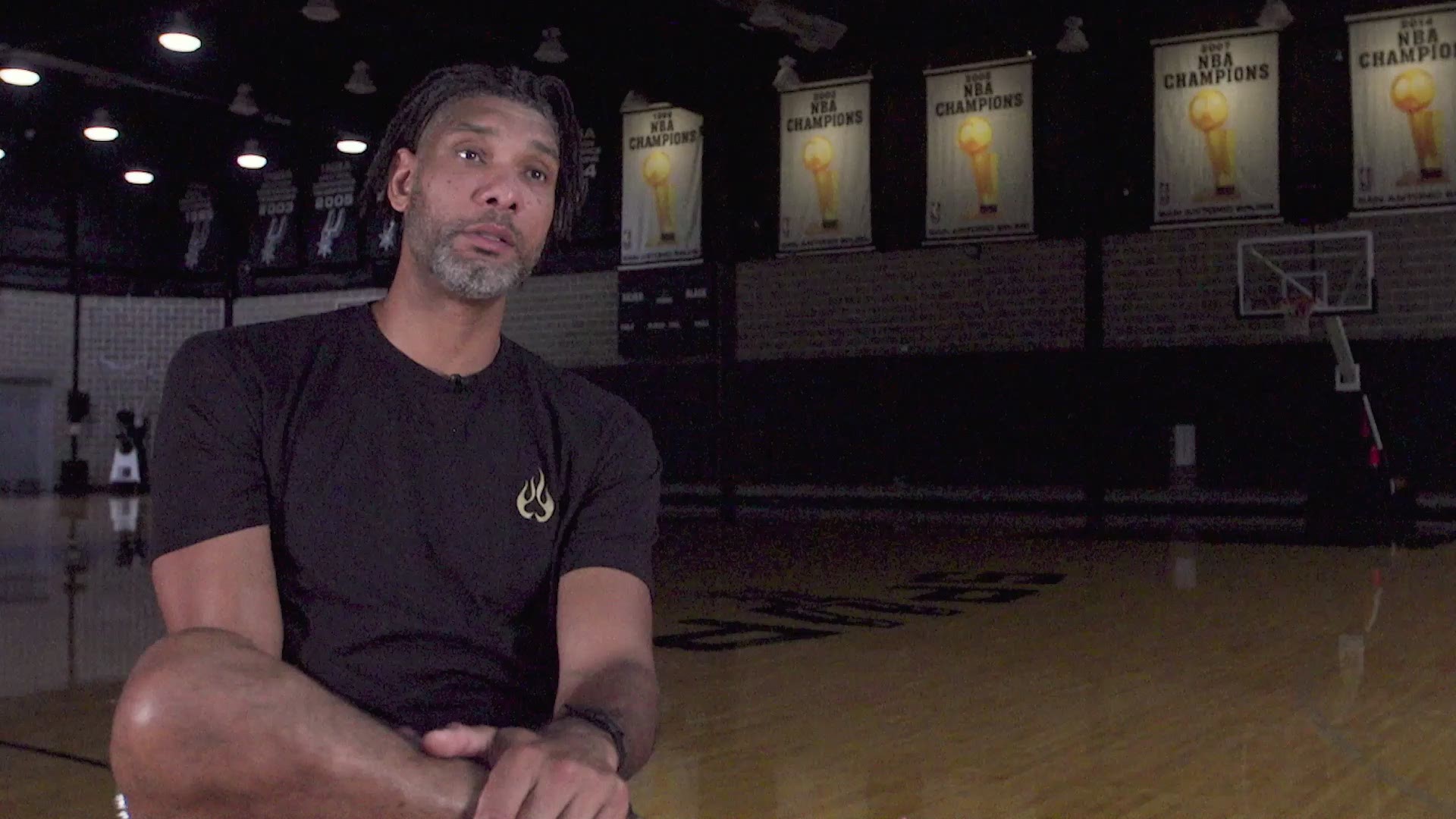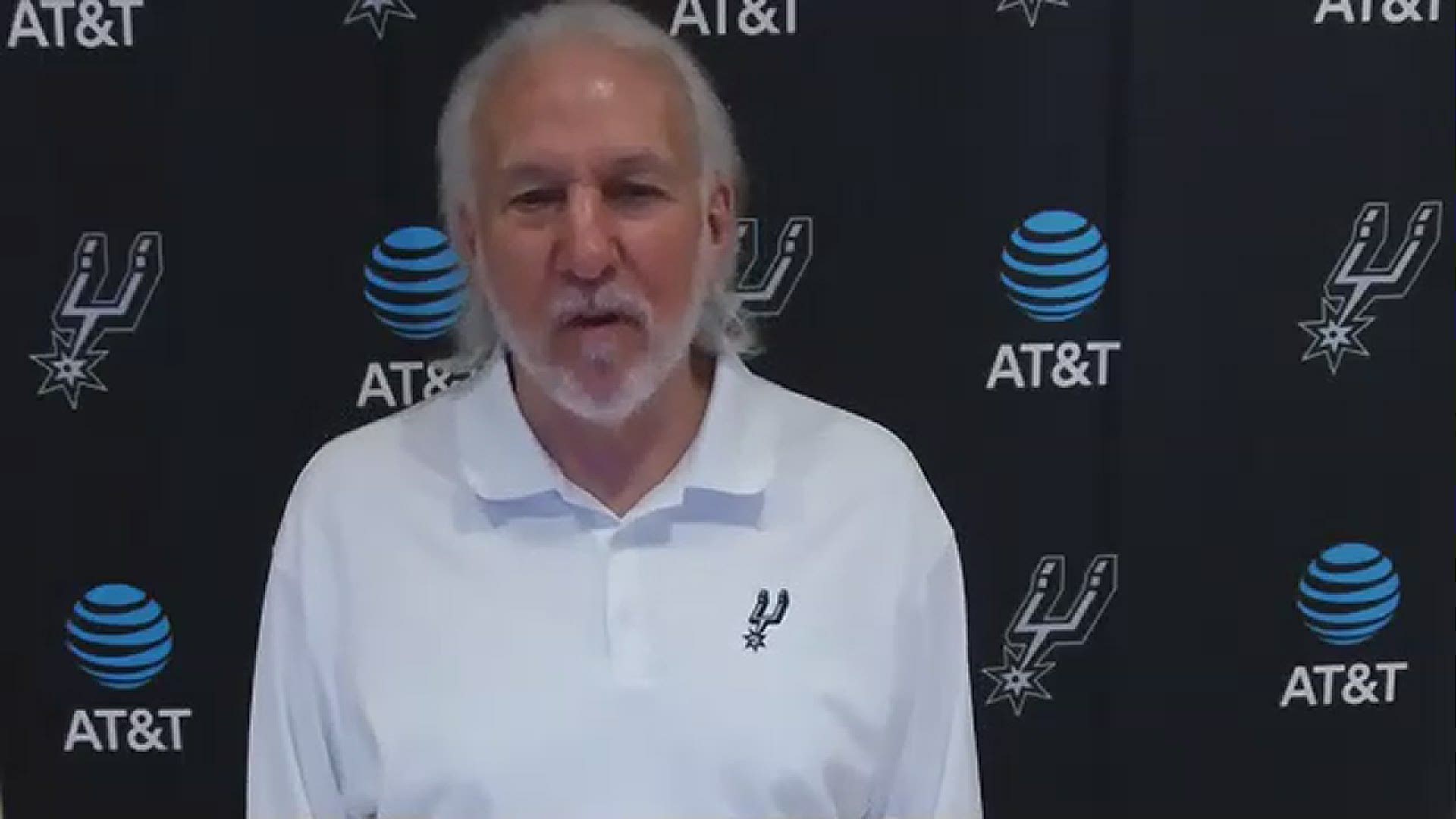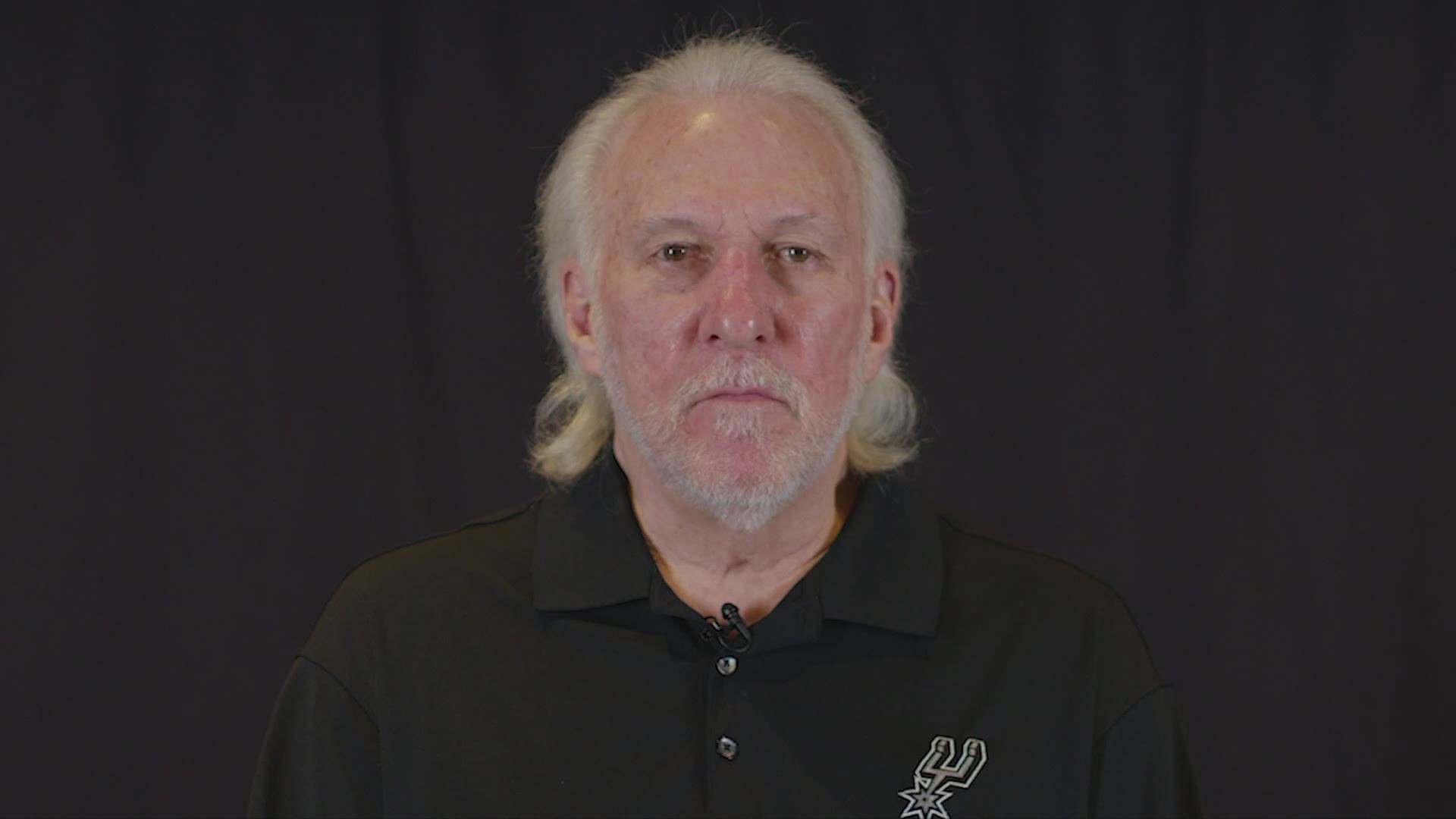SPRINGFIELD, Mass. — Tim Duncan took his rightful place in the Naismith Basketball Hall of Fame on Saturday evening, not just as an inductee, but as one of the greatest of all time.
He started his speech by saying that this was the most nervous he had ever been, which tracks. He's not known for public speaking, but his memorable speech left few dry eyes.
Duncan told his story, not by talking about himself, but about the people who helped him along the way. It's the story of a swimmer from the islands who lost his mom at 14, the same age he picked up a basketball. Standing at the podium Saturday, he talked about the poem and work ethic his parents instilled in him.
“Good, better, best. Never let it rest. Until your good is better and your better is best.”
"They told me, and made me have pride in everything I did. Be the best at everything I did. Be happy with what your role is, or where you are, and try to be the best at that, and I'm here because of them," he said.
Duncan's voice broke as he talked to his children, telling them they were special human beings and he can't wait to see what's next for them. He got just as emotional when he talked about his basketball family.
“I can’t wait to see you guys up here, and for me not to be up here," Duncan said to Tony Parker and Manu Ginobili. "It was an honor sharing the court with you guys. Thank you for everything, thank you for your friendship, thank you for your brotherhood, thank you for all the experiences we shared on that court, thank you.”
His voice wavered as he addressed coach Gregg Popovich, last but not least.
“After I got drafted you came to my island, you sat with my friends and my family, you talked to my dad. I thought that was normal, it’s not,” Duncan said. "You are an exceptional person. Thank you for teaching me about basketball, but even beyond that, teaching me that it's not all about basketball. It's about what's happening in the world, about your family."
The Big Fundamental needs no introduction to fans of the game, especially not fans of the beautiful game, but his resume is so absurd it’s worth reading over a few times just to remember the history he was able to put on the books.
- Five-time NBA Champion (1999, 2003 2005, 2007, 2014)
- Three-time Finals MVP (1999, 2003, 2005)
- Two-time NBA MVP (2002, 2003)
- 1998 Rookie of the Year
- 15-time All Star
- 15-time All-NBA selection (tied for most all-time with Kareem and Kobe)
- 15-time All-Defense (most all time)
- 26,496 career points (15th all-time)
- 3,020 career blocks (5th all-time)
- 15,091 career rebounds (6th all-time)
- 9,370 playoff minutes (most all-time)
- 1,001 wins (3rd all-time)
He accomplished all that, became the only player to start for a title-winning team in three different decades, and fans in San Antonio know he was so much more. Nobody would argue that any of the accomplishments listed above, or even all of them together, is the reason that Duncan is being enshrined this weekend. That’s less about what he did and more about how he did it.
His textbook post moves, his patented bank shot, and his ultra-disciplined defense all made him unstoppable on the court and provided a model for big men after him to learn from. His game wasn’t the sexiest, but it was beautiful to purists and brutal to opponents. That’s also not why he’s being inducted.
Tim Duncan is a Hall of Fame basketball player because he is a Hall of Fame person. He was the rock-solid foundation of a 20-year dynasty not because of his prodigious skill, but because of the work ethic he used to sharpen those skills. He wasn’t just the leader because he was the best player, he was the best player because he was a tremendous leader.
“He’s the most selfless individual I’ve ever been around,” said coach Gregg Popovich. “All he really cares about is being a good guy, living his life, doing the right thing, it kind of leaks into over basketball which was his job for so long. He just wanted to do the best job he possibly could, but mostly to win, to help this program be the best, to help teammates be better. His humor, his leadership, just his demeanor and his way of living his life made all of our lives so much easier, that’s just who he is.”
Those who try to diminish the on-court accomplishments of Duncan often point to the (future) Hall of Fame coach he spent his whole career with, or the multiple current and future Hall of Fame players he played with like David Robinson, Tony Parker and Manu Ginobili. However, all of those people will tell you how centrally important Duncan was, and how he was able to bring the best out of them without being a jerk about it. They’ll also tell you that at his peak, he was as unstoppable as anybody else with a bust in Springfield.
Robinson had been an NBA scoring leader and played for some good teams in San Antonio, but the arrival of a spindly Wake Forest graduate ushered in the Twin Towers era in San Antonio and made the Spurs title contenders. They won it in 1999 behind a Finals MVP performance from Duncan, and played Starcraft as a team between games and on the plane ride home.
A threepeat by fellow inductee Kobe Bryant and prime Shaq was ended by a Spurs team led by Duncan, who had just won his second MVP award in a row and put up 28 points, 12 boards and 5 assists per game in that series.
That 2003 Spurs roster has some recognizable names looking back, but Robinson was about to ride into the sunset and Parker and Ginobili were still quite young.
Duncan averaged 24 points, 17 rebounds, 5 assists, 5 blocks and a steal per game in the Finals, capping it with a 21-20-10-8 game that those who watched the tape will tell you was actually a Finals-clinching quadruple double.
That’s wildly impressive, but it’s arguably more impressive that he had a legitimate argument for another Finals MVP award over a decade later after publicly vowing to avenge the previous year's defeat. His longevity is nearly unparalleled in the modern game, and his greatness is the common thread tying San Antonio’s championships together.
"On a professional level, the most concise way to put it is, 'no Duncan, no championships.' And on a personal level, I love the guy," Popovich said.
"With his teammates, he set the quiet example of competing every day," Pop said. "He always took the lead, even Manu and Tony looked toward him, and he gave of himself in a very humble and quiet way. As far as the teams were concerned, the championship teams were all kind of different. New guys kept coming in to round it out, and he was the guy who welcomed them all. He was the one who made them all feel comfortable and let them know what he expected of them. His standards were really high, he suffered no fools, but he gave everybody an opportunity to commit to the role and fulfill it."
He was a coach on the floor beyond the X’s and O’s, and when his playing days ended, he didn’t stop being a leader. He stayed around the practice facility, putting the young guys through their paces and eventually serving as an assistant coach for a year. Lonnie Walker IV tells a story about the time the retired Duncan worked him out so hard he puked, then they kept going.
It wasn’t even just his teammates. Multiple opponents have told stories about Duncan giving them pointers mid-game about how he was beating them, and how they could do better against him next time down the floor.
Take the brash, cocky, ‘I know I’m the man and you can’t stop me’ greatness of Larry Bird telling opponents how he’d beat them before doing it, and replace the trash talk with the genuine care of a special kindergarten teacher. Duncan didn’t talk like that to get in his opponents heads and intimidate them, he actually wanted to teach the game while playing it, even if it gave his competitors an advantage, maybe because he knew he could still beat them.
Sean Elliott told a story about how he invited Tim to his house and showed him how to play Mortal Kombat, and within five minutes Duncan was beating him on the machine in Elliott’s home. That’s when Elliott says he learned that you could show him something you’ve been doing for years, like Timmy did to those kids in the league, but he’d turn around in 10 minutes and be better than you.
Elliott learned on the morning of his induction that Duncan actually mastered Mortal Kombat at college, meaning that he sat through the lesson while suppressing a smile and thinking about the hit combos he was about to unleash. He could have smack talked his new teammate, but let his game do the talking instead.
That’s Duncan the competitor, the quiet assassin, the one who loves to win and hates to lose, even at videogames.
He's a kid from the islands who kept a promise to his mom. Gregg Popovich made a promise to Duncan's father too.
"He told me in his last days, pulled me over and said, 'My boy better not change, you cannot let my boy change, I want him to be the same person he is today," Pop said. "He is."



